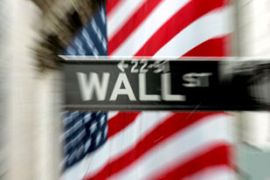US politicians attack bail-out plan
FBI to probe Fannie Mae, Freddie Mac, Lehman Brothers and AIG for fraud, report says.

The crisis has led to the Bush administration’s bail-out plan which would give the government broad power to buy the debt of any US financial institution for the next two years and would increase US national debt from $10.6 trillion to $11.3 trillion.
Ben Bernanke, the US Federal Reserve chairman and Henry Paulson, the treasury secretary, urged the US congress and politicians to approve the bail-out.
But the proposal does not specify what the government would get in return from financial companies for the federal assistance and legislators from both major parties were not impressed.
“What they have sent us is not acceptable. This is not going to work,” Chris Dodd, the Democratic chairman of the senate banking committee, said on Tuesday.
Richard Shelby, the most senior Republican on the committee, said “we have got to look at some alternatives”.
Congress is expected to vote in the next few days on the proposals with both Republicans and Democrats hoping for a quick resolution to the crisis.
‘Preventable situation’
Bernanke told the committee that, despite unprecedented steps already taken in the crisis, global financial markets “remain under extraordinary stress”.
But Dodd said he was “angry” about being faced with a crisis that was “a preventable, avoidable situation” created by a political climate he described as “basically an eight-year coffee break”.
| ‘King’ Henry |
|
Paulson had the same powers as his predecessors until a couple of weeks ago: oversight of the government’s taxation and fiscal policies. But as the financial storm erupted, with some institutions crumbling, sold or bailed out, Paulson’s new job description has changed substantially. If approved by congress, his rescue plan would give him sole control of a $700bn line of credit, and the power to use it to take on any bad mortgage-related debt he chooses. Congress, and the two main presidential candidates, John McCain and Barack Obama, have called for greater oversight of such powers. |
“You had regulators sitting back as loans were being made with no documentation … predatory lenders taking advantage of the situation – that’s how this all unfolded. It’s not a mystery,” Dodd said.
The senator has proposed a number of amendments to the package, including a provision to allow the government to take a stake in the companies it bails out, limits on compensation for company bosses and severance packages of rescued firms as well as additional help for American homeowners facing repossession of their property.
Al Jazeera’s John Terrett, reporting from New York, said investors were not convinced that the plan was big enough or that the proposal would be approved in time or would work.
They fear that the government will have to dramatically ramp up borrowing to pay for the mammoth rescue effort, an inflationary move that could further devalue the dollar and trigger another surge in commodities prices, our correspondent said.
Democrats, who control both chambers of congress, said that the White House had agreed to the creation of a board to monitor the bail-out, one of their key demands, but differences remain on levels of compensation for executives of rescued companies, or whether they should receive anything at all.
“We are not sending a blank cheque to Wall Street,” Nancy Pelosi, the house speaker, said after holding bipartisan talks on Monday.
Paulson has argued the bail-out would prove cheaper for taxpayers than leaving companies to suffer the cost of the crisis themselves.
Some critics have expressed concern over the unprecedented power that the plan would give Paulson and the US government in the financial markets.
George Bush, the US president, warned congress a day earlier that “failure to act would have broad consequences far beyond Wall Street”.
Stocks fall
The wrangling over the bail-out plan did not help markets on Tuesday and the Dow Jones industrials fell 161.52, or 1.47 per cent, to 10,854.17 after having risen more than 125 points earlier in the day.
Asian markets were mixed on Wednesday, with Japan’s Nikkei following the Dow to drop about 1.4 per cent in early trade but Hong Kong’s Hang Seng gaining nearly 1.5 per cent and markets in Singapore and South Korea mostly flat.
“We now have a delicate situation about whether the US congress will approve the bail-out plan and this is weighing on the market,” Takahiko Murai, general manager of equities at Nozomi Securities, told the Reuters news agency.
